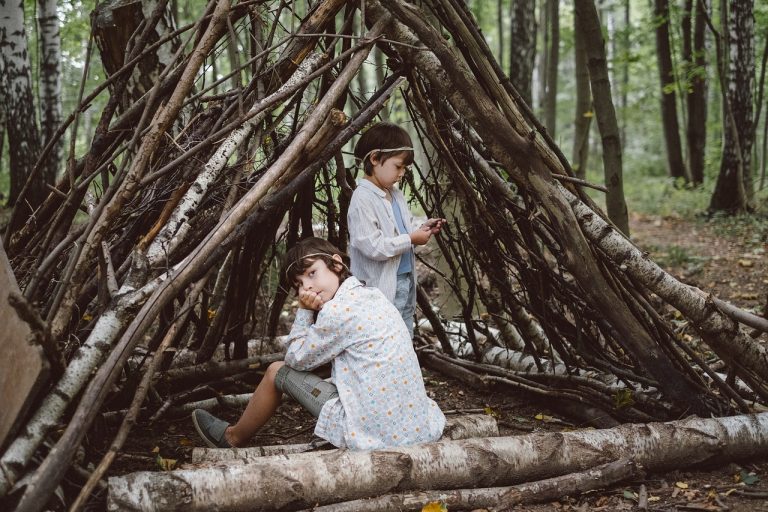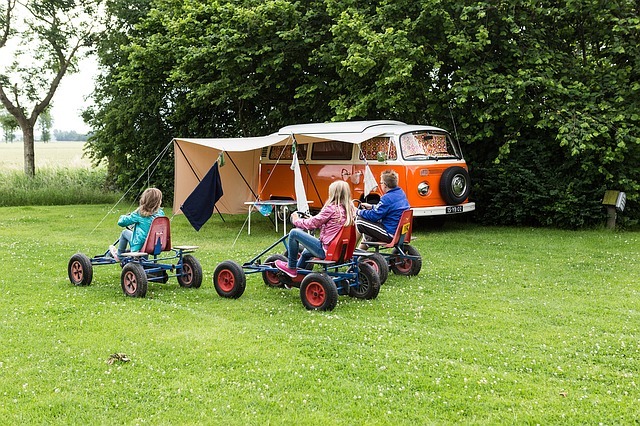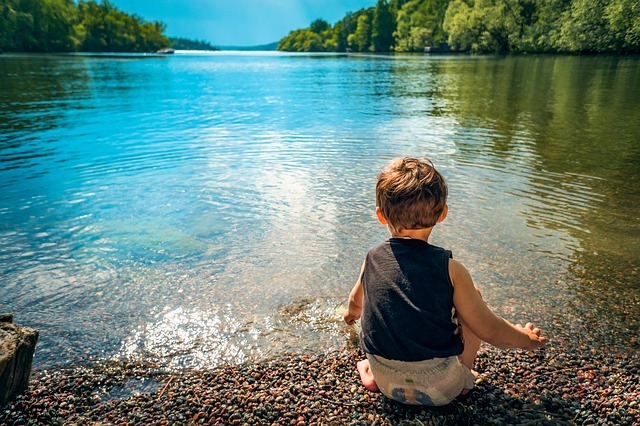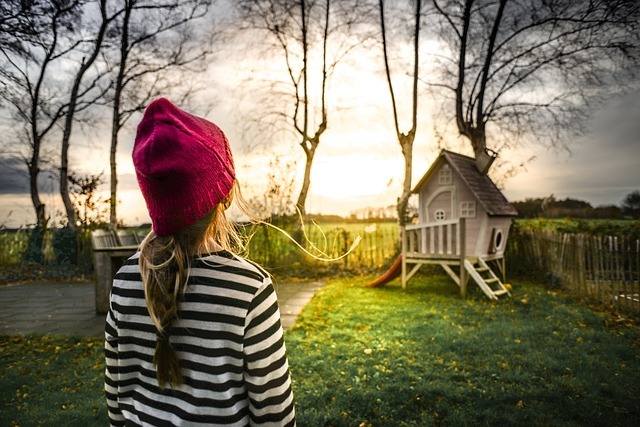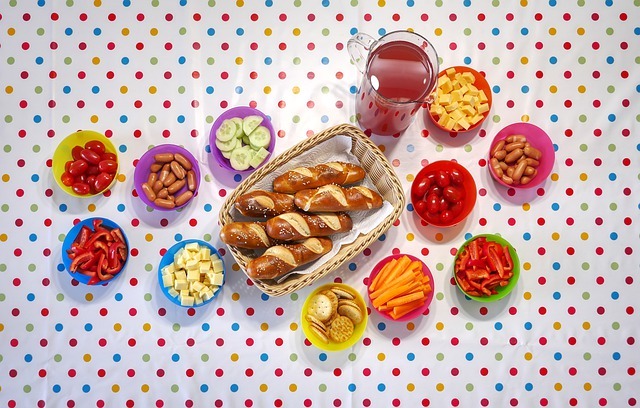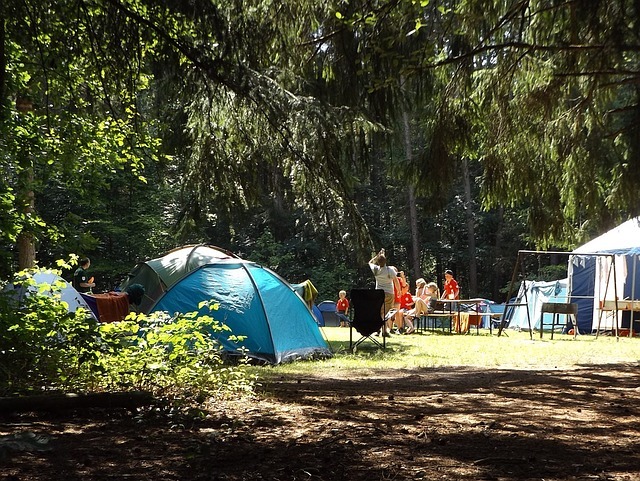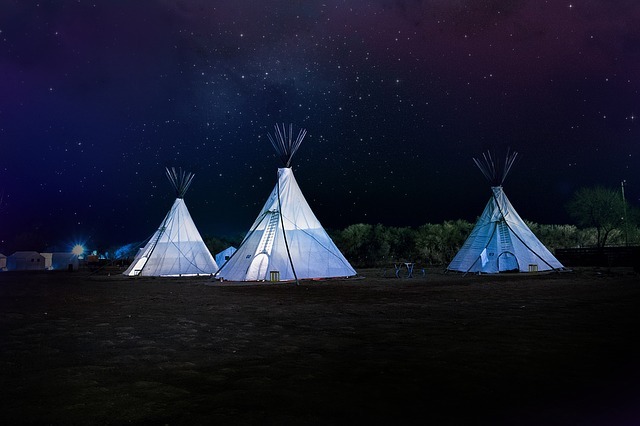Camping with kids is definitely a memorable experience. There’s something alluring about creating those memories you know will stay with them for a lifetime. Even if you’re an inexperienced outdoorsman, there’s no reason not to partake in an adventure like this.
Camping under the stars, around a fire, singing songs, playing games and telling stories are some of the many things you can enjoy on an excursion. There’s nature to be explored and a wealth of skills everyone can learn. All it takes is the willingness to let go of a few modern comforts.
Taking Your Kids Camping & A Few Reasons To Do It
If you’ve ever asked children what they’ve done over the weekend or during their last school vacation, it’s a rarity that you’ll hear camping as an answer. There’s an assortment of reasons why they probably haven’t, but here are some reasons why you all should give camping a try for your next family getaway.
Camping Teaches Survivor Skills Everyone Should Know
If you don’t know these skills, that is perfectly okay because there’s an abundance of resources and tutorials to teach you about camping outdoors. Learning the basics of which plants are poisonous, how to remain safe while hiking through the woods, starting a fire, putting one out and how to stay hydrated will be skills that stick forever. They’ll learn how to cook just about anything over an open flame and how a pinch of sage burning in the fire keeps the mosquitoes at bay.
It Can Build Independence
I remember camping with my family as a kid. I’d wake up at the crack of dawn ready to get the fire going to start breakfast. When I was finally old enough, I was taught how to collect firewood, start a fire safely and keep the embers going until Mom or Pop was ready to start cooking. You can give your kids this kind of independence to go out and be productive to the experience. Even if they decide to venture off on their own to explore the woods nearby, camping and all of its activities present an opportunity to build the independent spirit within them. Learning to let go and let them find their way is a lesson to be learned by adults and kids.
Every Vacation Doesn’t Have To Break The Bank
Going camping isn’t always the cheapest option, but with its minimalistic approach, you won’t have to empty out the savings either. A few groceries and renting a campsite for a few nights can come in under 200 bucks for a weekend getaway with the family. Most campsites have electrical and water hookups too. All you have to bring is a tent, your brood and a few necessities to get your camping getaway started.
Get Those Creative Juices Flowing
Encourage a trip where screen time is minimal to get everyone engaged with each other. One of the fondest memories you can create is playing a silly game of charades by campfire light. Bring along board games, card games and even make up your own as a group to create fun times without having to worry about a battery dying.
Facing Fears Is A Good Thing
For those that are scared of the dark or afraid to go swimming because they can’t see the through the water around them, camping is a great way to face those fears. As a matter of fact, there are a few things to spark unintentional growth in the great outdoors. Learning to respect and navigate nature around them is a great way for kids to show their strength rather than shrink behind the things that frighten them.
They Don’t Need All Of That Stuff
Camping has a great way of showing kids exactly what’s important to them. Once that phone battery dies and they get absorbed into the amazing experience around them, they’ll realize that all of the amenities they’ve lived with aren’t always necessary. They can make do falling asleep in a hammock under the stars or in a tent snuggled close to Mom in a sleeping bag on an air mattress. Being away from the constant bombardment of the mindless entertainment gives them a chance to detox and recharge their internal batteries.
Get The Kids Excited About Camping
Now that you have a few reasons why you should go camping with kids, it’s time to get them excited about going. Aside from the memories, you’re looking forward to capturing with the flash of a camera, tell them about the great activities waiting for them in the great outdoors. Talk about the songs you can sing around the fire, what it will be like to pitch a tent together and hiking around the campsite to what nature has to offer.
Finding The Right Campsite
It’s always good to get the kids involved when deciding on a campsite. They can research the activities at different places helping you narrow down the choice of where to stay and which spot would be best for everyone to have a good time. If you’re all beginners, you may want to practice pitching your tent in the living room or backyard. When you get to the campsite, if things still don’t go as planned, try booking a place where you can rent cabins or trailers if necessary. It will be good for kids to see adults try and fail at things. Showing them it’s okay when things don’t go according to plan is the best way to teach them how to adapt to their surroundings. Also factor in what the kids like to do when looking up the right campsite. For instance, if they like to rollerblade or go swimming, book a place with access to waterparks and bike paths.
Plan For Popularity
Traveling around in an RV is far more popular than you may expect. During the peak season, it’s often difficult to just pop-up and snag a campsite. Some parks and camping grounds are major tourist attractions and require you to make a reservation prior to your arrival. For those spots that don’t allow you to make reservations for weekend days, try arriving on a weekday and staying through the weekend.
Schedule Activites & Properly Plan For Them
Make a list with the kids about their favorite activities and throw in a few you can surprise them with. Perhaps the site you’re booking allows for canoe rentals or they offer daily hikes with a guide. Make sure you have the proper clothing for the season along with the gear you need to do all of the activities your family’s planned to do. The campground websites and tourism websites have the bulk of the information you’ll need to find out what’s in season near the campsite.
Accommodating The Smallest Campers
While it would certainly be easier to have everyone doing the same activities at the same time, preferences and expectations can vary depending on the age group. It’s wise to discuss ahead of time what the trip will be like especially for toddlers and little kids. Give them an idea of how long the car ride will be and the fun things they can do along the way.
Babies are easy enough to travel with. Pack along a portable bed that can double as an outdoor playpen. Put a mosquito net over top to let the tiniest of the group enjoy the sounds and sights of nature.
Toddlers have a natural curiosity, so be prepared for impromptu hikes. Bring paper and crayons for them to draw what they see while learning not to pick or touch everything they see. It’s also a great idea to put a tag on your little wanderer too. It can be as simple as an index card in a luggage tag pinned to them or hanging from a lanyard. Be sure the tag has their name, age, your campsite number, your vehicle’s license plate, your name and cellphone number to be sure if someone finds them, they know how to find you.
Younger kids between the ages of five and 10 are usually excited about new experiences. They’d enjoy helping to set up the campsite, building fires and bombarding you with endless questions of excitement about what they’re doing.
Teens can be the most finicky of the bunch, but still, this should be an invaluable experience for them as well. Be flexible and let them bring along a friend. If they want to take off on their own for a bit, bring some walkie talkies so that they can keep in touch with the home base while they’re out expressing their independence. Talk about how much time they’ll have to themselves versus planned time for family activities. Preparing children of all ages for what to expect will minimize disappointment while on your trip.
Practice Makes Perfect, Or Just More Practice
As much as we would all love to learn something new for the first time and get it right the very first time we try it, that’s just not the way the world is set up. Pitching a tent can be difficult to the inexperienced nature lovers. With small kids in tow, it can become stressful after a long drive to the campgrounds to run into a few hiccups when it’s time to set everything up. Practice putting up the tent at home first. It doesn’t matter if it’s the backyard or the den, knowing what to do and which pieces go where will save a lot of time than learning on the spot and hoping for success.
If you do any kind of countdown to specific holidays, events or celebrations, you can treat the practice run as a treat and step in the countdown to your camping vacation. Help them come up with a list of things they’ll need to bring and how they should pack for the trip. While building a fire pit in the backyard may be out of the question, a small grill will suffice for the practice experience.
Your Tent And You
Technology has a funny way of catching up with the old ways of doing things. While you can stick to the bare bones of spikes and perpendicular poles covered with a tarp, there are now massive tents that have rooms and hallways inside of them. If you want to keep it simpler than that, you can pitch two tents on the same campsite if you have a larger group coming, especially if there are teenagers in tow. They’ll want their privacy and time away from the group, not to mention if they stay up later than the little ones they’ll just wake everyone else up. Let them have their space and all of the noise that comes with it in a tent of their own.
I Want To Do It!
I’m sure you’ve heard this expression more times than you care to count. Sometimes it pays to just let the little boss babies have their way and let them do it. Show them how to layer up for those cold outdoor nights. Teaching them how to roll their outfits together in a log formation that saves space and keeps everything together will save you a headache of searching for the missing shirt to those pants while on your trip. Also, make them practice picking up after themselves so they leave the campsite with everything they came with.
Infants And The Great Outdoors
Babies typically love the outdoors since there are so many things for them to see, hear and touch. Unfortunately, there are a lot of things for them to see, hear and touch. Try packing some playmats and blankets to lay down outside giving them a wide area to crawl around without getting into too much trouble. If they’re too small for tummy time outside, try bringing along their playpen. Stretching a crib sheet over the top gives them some much-needed shade from the sun and protection from insects.
Snack Time For The Hangry
We’ve all been there and there’s nothing like being hungry and out in the middle of a campsite or hiking trail when it strikes. Snacks are best to be packed in an abundance of what you think you’ll need. With little ones expending so much energy they’re bound to get hungry far more often. Pack items like trail mix, cereal bars, protein bars, fruit pouches and other family favorites that don’t need to be refrigerated. They’ll save you in a pinch, especially if you’re a ways away from getting back to the campsite and cooler.
Packing The Toy Chest
Don’t do it! As much as the kids would love to bring every item they enjoy playing with at home, reduce their toy baggage to one or two of their favorites. Encourage them to play in their surroundings. Bring toys like kites and balls to keep them occupied outside in an unstructured setting. You may want to pack something to keep them occupied in those first waking moments until you can collect yourself, but other than that keep it simple. Don’t pile the toy chest into the car. Let their imagination run free.
Dress Them In Layers
One of the things that may strike you seemingly out of nowhere is how cold it gets camping outdoors. It could easily be 80 degrees in the daytime, but at night the temperature will plummet to a cool 45 degrees. If you’re going camping in the late summer to early fall, be prepared for cold snaps and cooler days by layering their clothing. Tights and extra pairs of socks under heavy jeans help keep them warm as they run around and play.
Prevention & Medicine Prior To Camping
You’ll want to be sure that everyone is up-to-date with their vaccinations. It is essential that all exposed areas of the skin are protected with sunscreen. Make sure the kids wear long sleeve shirts to help protect against insect bites. You can also pack the insect repellant with DEET and make sure to check everyone for ticks regularly. Also, remember to keep equipment that burns fuel, like lanterns, outside of the tent.
You Can Do It Faster
It’s obvious that if left by yourself, you’d be able to master camping on your own in no time. However, for this family getaway, it’s better and creates fonder memories if you let the children in on the action. Giving them small tasks to help make the campsite comfortable breeds independence and encourages them to have a good time while helping out. Let them help sort the foods you’re going to cook on the fire or inflate the sleeping bed pads that everyone will sleep on. Giving them a sense of responsibility while teaching them key safety techniques about cooking outdoors and fire safety will stay with them.
Light It Up!
While encouraging your little ones to face their fears, fear of darkness may not comes as easily in one night. Packing small lights to help ease their anxiety will allow everyone to sleep tight. Headlamps are great for lighting the trails to bathrooms after the sun goes down. Packing a rechargeable lantern can also come in handy to ease the anxieties of little ones while out in the wilderness. You never know how dark night time is until you come out from under the umbrella of city street lights and suburban living.
Prepping For Waking Up Not At Home
Camping is one of those experiences that can be jarring when you’re unprepared for the tiny comforts of home you have to do without. One of them being walls! Little ones who wake raring to go might do better if you pack a toy or coloring book for them to play with until you’re completely awake. Packing a travel toilet can make it easier for the potty training tikes to go without having to hike to a bathroom in the middle of the night. Make sure to pack earplugs for the light sleepers who like to sleep in late or turn in early.
Rules Are Meant To Be Broken, But Not These!
You have rules at home to keep everyone safe and sound. It’s no different when you’re preparing the family for a few nights out in the woods. When you’re going over the rules check to make sure the little ones understand. You know how the young kids like loopholes, make sure to adjust your rules to make sure everyone knows how to behave and what to expect while on the campsite. Here are some to keep in mind:
- Don’t eat anything you find in nature. It doesn’t matter how delicious the mushrooms, berries, or nuts look. Unforeseen allergic reactions can be dangerous.
- Don’t eat inside the tent. Keep the food outside and cleaned up to prevent woodland critters from snooping around your campsite looking for snacks to nibble on.
- Don’t pet any wild animals and don’t bring them back to the campsite.
- Stay away from water unless there’s an adult present or lifeguard on duty depending on where your camp getaway is located.
- Keep your shoes on to prevent injuries to those tiny feet.
- If they are allowed to go shoeless, set clear boundaries and prepare a space for them to clean their feet outside of the tent.
- Show the kids where you want the clothes and supplies to go when they tidy up. It’s always better to leave the campground better than how you found it.
- Keep food and trash off the ground. If you can hang it from a tree, that will be better to keep the animals out of the site. Food not yet eaten is best kept in airtight containers inside of coolers to minimize wafting odors.
- Eat enough food that gives you energy and try to stay away from too much sugar.
- Make sure to stay hydrated. Pack plenty of water to drink, but please bring your empty bottles back to the site with you to dispose of them properly.
- Learn what Poison Oak and Poison Ivy look like and then stay away from them. Nothing ruins a camping trip like having to be covered in calamine lotion for the duration of it.
- Give everybody a buddy. Going off alone isn’t recommended at all for younger children, but for the older ones let them bring a friend or sibling when they venture off. Use walkie talkies to keep in touch without having to rely on cellphone reception and batteries.
- Don’t leave the marked trail when you’re hiking either.
- Keep your pets on a leash.
- Bring a flashlight with you when you’re hiking just in case you’re out after dark.
- Learn fire safety and respect the flames. As pretty as it glows, it’s dangerous and can get out of hand quickly.
- Don’t bring fire items like candles and lighters into the tent.
- Also keep shoes outside of the tent. You can rig up some tarp and poles into a makeshift shelter for everyone to remove their shoes and have a place to put them.
- Don’t play with camp tools.
- Don’t touch the stove, grill or rocks around the firepit as they may be hot and can cause serious burns.
- Along the side of time, set limits to screen time if they’re not being left at home. Everyone can have personal time, but make sure to schedule some family fun as well.
Setting rules along these guidelines should help keep the smaller kids safe and the older kids engaged with the activities everyone else is participating in.
Safety First
Along with the rules, you can set some boundaries for the kids while they’re out and about When hiking, make sure everyone knows to stick together and to make some noise while you’re hiking. It alerts animals that your group is approaching. Be sure children know how far they can go from the tents without you by their side but always with a responsible buddy. It also helps to give everyone a whistle to wear in case they get separated from the group or lost wandering to someone else’s campsite.
When it comes to the fire, keep the little ones away by drawing a line in the dirt around it telling them they cannot cross it. Watching their eyes dance with the flames as they get closer and closer is a recipe for disaster so try to nip it in the bud as soon as possible. Getting them little campsite chairs should keep them happy as they’ll be in a chair like everyone else.
Teachable Moments Can Be Found In Nature
It’s easy to get on a schedule for activities and forget to have some flexibility and fun. When children are on a hike, they tend to get distracted wanting to wander off looking at small critters, rocks and whatever else grabs their attention. Use these moments to show them how to identify different types of plants, leaves and trees.
If leaving phones at home isn’t an option you can download some educational outdoors apps that let you identify the stars and their constellations.
Dirt Don’t Hurt
You’re camping, there’s dirt and everyone’s bound to get dirty. Let the little ones make their mud pies in peace. It’s okay if the kids get a little dirty. In my experience the dirtier they get the more fun they’re having. Annoying as it may be, especially since you’ll probably be the one on cleanup duty, having some fun and getting dirty in the process is okay.
If your campsite is without running water, you can prepare a wash station with a soapy water bucket. There are also the hundreds of wipes that come in one of those re-fill packs. Wipes along with a foaming hand sanitizer can do wonders when the dirt becomes way too much to handle. Let the older kids bring along their skincare and cleansing products too if it makes them comfortable.
Bend But Don’t Break
One of the key factors in doing anything with kids is being flexible. They throw curveballs at you constantly without any regard to what your plans were. It’s okay if every item on the itinerary isn’t checked. If no one wants to go on that hike to catch the sunset then don’t force them. Relax, slow down and take in those impromptu moments that will become legendary in the years to come. Everything can go according to plan or everything that will go wrong does go wrong. Either way, as long as you all make the best of it, you’re sure to carve out a piece of family history they’ll be sure to remember.
Cozying Up At Bedtime
Sticking closely to your regular bedtime routine is optimal for little ones. It will certainly help when you return to your regularly scheduled program back at home. Nighttime on a campsite can be magical. Snuggling up inside of sleeping bags, leaving the flap of the tent open to catch a cool breeze or even sharing sleeping bags can create some of the best moments of the trip. Tidy up and tell bedtime stories.
Chaperoning Other People’s Children
Be sure that if you’re in charge of another person’s child, whether they’re related to you or not, have written permission from their guardian for medical treatment in case of an emergency. Valuable time can be lost if emergency officials can’t proceed with some kind of treatment because they don’t have adequate permissions or information to treat someone else’s child. Make sure to have a list of allergies and important phone numbers for them as well.
Learn & Grow
Nothing in life is perfect, right? If you’re expecting a perfect outing with a picture-perfect happy ending, you might be setting yourself up for disappointment. Prepare yourself for anything that can go wrong. Make notes on how to prepare better for it next time and remember to relax and enjoy yourself. This is supposed to be fun.
Legendary Stories In The Making
Regardless of what happens, your kids will be telling stories about these adventures for years to come. There will be inside jokes and laughter to last a lifetime. You’ll always know when one of these stories is coming because they all start with that magical phrase, “Remember when?”
Camping With Kids Checklist
- 15 Best Free Online Virtual Summer Camps for Kids (2022) - July 6, 2021
- Expert Roundup: Advice to Mitigate the Effects of Coronavirus - March 22, 2021
- Best Gifts for Travelers - January 15, 2021
